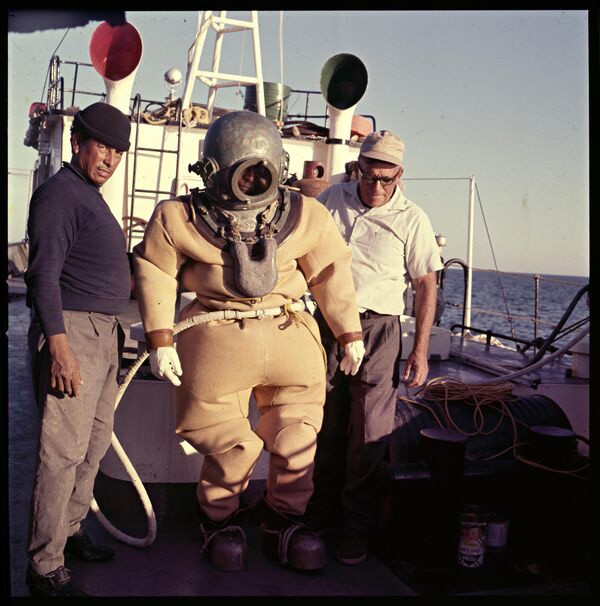Building Shared Vision and Getting Started
Ironically, the first significant assembling of the Manglito fishing community in 2012 involved agreeing to cease fishing and to establish a local surveillance program to ensure no clams or scallops could be illegally harvested. Getting to this turning point took many years of partnership the local NGO, NOS (Noroeste Sustentable), which was first established in 2002 by Alejandro Robles and Gaston Luken. The NOS staff members completed moving their offices to an old building within the Manglito community in 2008 and thereby began an entwined journey of learning and change with the residents of El Manglito.
Even though they were all Mexican, initially the gulf between the NOS scientists and the fishers seemed impossible to bridge. It is easy for NGO staff to see themselves as pitted against fishers continuing to deplete a stressed fishery even when it is legally closed. Conversely, fishers often believe the only purpose of an NGO is to keep them from fishing. As long-term Manglito community member Ramona Méndez recalls, “at first, they [the fishers] hated NOS. Only a few were involved with them back then. The meetings would last one second and then they would all start to fight each other….People didn’t trust Alejandro [Robles] either.”
Alejandro Robles
Robles had been working in international NGOs for seventeen years when he founded NOS.
Learn How To “Hold” Rather Than Resolve (Conflict)
Mostly trained as marine biologists, the NOS staff found themselves on a steep learning curve as budding community organizers. “We were struggling,” says Robles, “because we just couldn’t seem to work with the fishermen at all or the community. We had clean-up campaigns and were supporting kids’ sports teams, but it was just a start…since moving our office…not much had happened yet in terms of restoring the bay.” Initially, they tried to apply training in conflict resolution but found it limited in addressing an ever-changing on-the-ground reality. Gradually, they began to learn how to “hold” rather than resolve conflict, cultivate trust and shared vision, and blend marine science with collective learning tools as part of their day-to-day activities.
As the journey unfolded, it became self-evident that the only ones who could ultimately lead the restoration of the fishery were the community members themselves. As NOS staff member [and Academy Fellow] Christian Liñan-Rivera put it, “Tools for transformation and learning will have little impact if not embraced and practiced by the community. Outside helpers like NOS cannot restore the Ensenada; the only ones who can do that are the community members themselves….Many felt that the real aim of environmentalist NGOs was simply to force the fisherman to stop fishing. In turn, it took time for NOS to appreciate that there were strong restoration leaders within the community.”

“I wanted to take action and restore the Catarina [scallop] and the Callo de Hacha [clam],” says Hubert Méndez, a fisher and one of the current leaders of the new fishing cooperative OPRE. “And I wanted to do it with the Manglito [community], with my palomilla—that’s what you call your friends, or your crew. That was the main issue, how to do it with the entire palomilla. NOS wanted to do all in just one day, but we told them it will take time to build trust within the community.”
New Capacities For Listening To One Another
Over the ensuing three years, there were many ups and downs, but NOS and a small but growing cadre of leaders within El Manglito began to work together and gradually develop new capacities to listen to one another. Finally, in 2011, a group of El Manglito fishers made the first agreement to stop harvesting the Callo de Hachas. An initial community surveillance program was set up the next year.
